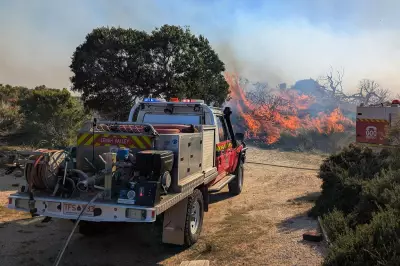
Australia's Parliament faces a critical environmental crossroads this week as the federal government pushes to pass its long-awaited nature law reforms before the year ends.
Political Stakes High for Environmental Overhaul
Environment Minister Murray Watt has set a crucial deadline to shepherd the environmental protection legislation through the Senate in what represents the most significant reform to Australia's nature laws in decades. The proposed laws seek to establish a National Environmental Protection Agency (NEPA) and implement National Environmental Standards, responding to the damning findings from the independent Graeme Samuel review conducted five years ago.
The Samuel review exposed the Environment Protection and Biodiversity Conservation Act 1999 (EPBC Act) as fundamentally broken, failing both environmental protection and development interests across the nation.
Greens and Coalition Pose Different Challenges
Despite Labor's substantial parliamentary majority, the government must secure support from either the Coalition or the Greens to pass the legislation through the Senate. This requirement has created a complex political dynamic where environmental outcomes risk being compromised by partisan positioning.
The Greens have maintained their demand for an immediate ban on native forest logging, potentially jeopardizing support for the broader reform package. While Senator Watt has offered concessions including requiring native forestry to comply with tougher national standards within three years and ensuring the new "national interest" mechanism won't approve coal and gas projects, the minor party continues to scrutinize the proposal.
Meanwhile, the Coalition has presented its own set of demands, including watering down the proposed NEPA's powers and clarifying the scope of environmental fines that could reach as high as $825 million. Opposition Leader Sussan Ley has threatened to send the bill to a months-long committee process, a move critics describe as obstructionist amid the urgent need for environmental reform.
Urgency Amplified by Environmental Pressures
The political negotiations occur against a backdrop of increasing environmental urgency. The early arrival of fire season, highlighted by Monday's tragic death of a firefighter, underscores the pressing need for robust environmental protections and climate resilience measures.
Senator Watt faces the delicate task of crafting legislation that provides maximum environmental protection while avoiding constraints on vital projects such as rare earth resource development. The reforms specifically aim to address loopholes in existing mechanisms like the Regional Forestry Agreements (RFAs) that have drawn criticism from conservation groups.
Political observers suggest the Coalition would benefit from reaching a bipartisan agreement with Labor, as failure to do so could push the government toward a deal with the Greens that would likely produce more prescriptive legislation less friendly to industry interests.
With the legislative package approaching its political "best before date," all eyes turn to whether political parties can demonstrate the maturity needed to deliver meaningful environmental reform that balances conservation needs with sustainable development.





